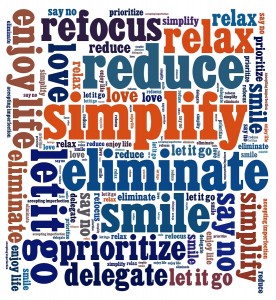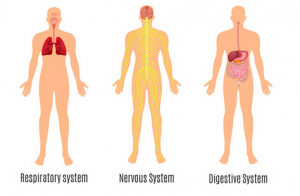
My birthday is Ground Hog’s Eve (Feb 1st). That means I get a do-over for whatever New Year’s Resolutions I haven’t followed through with. I get to make new resolutions for what I want to change before my next birthday. But this year I decided not to make resolutions. I decided to set intentions instead.
Resolutions too often include words like “don’t, won’t or never.” Intentions are focused on the future and can be stated in the present tense every day. After my morning meditation, I frequently set an intention to be grounded and focused throughout my day.
Intentions can become habits. A habit is defined as “an addictive behavior that is hard to give up” but an addiction does not need to be viewed negatively. For example, I am addicted to my grandchildren. The more time I spend with them the more time I want to spend with them.
What would happen if I became addicted to new habits? To become addicted, the first thing I need to do is to explore how I will benefit from my new habit. In sales, we are taught that when we convey the benefit first, ask key questions that lead our prospect to reply “yes” or to nod their head affirmatively, the close will take care of itself.
In December I set an intention to allow more time to get places and not squeeze one more thing in before getting out the door. Then I decided I couldn’t wait until January to put this into action because rushing to get out the door was stressing me out and negatively affecting everyone around me.
It isn’t an intention anymore; it’s a new habit. The benefit of allowing myself more time to get places and get out the door on time is that I don’t feel stressed about forgetting something important or anxious about being late. I am more grounded and focused throughout my day.
Habits create different types of energy. Good habits create positive energy that flows. “Bad” habits create problems like clutter and disorganization; a stagnation of energy, productivity and efficiency.
As a Home Organizer I look for the cause of the clutter and chaos in a space and often I see it is because of “bad” habits like not processing junk mail or not breaking down cardboard boxes when they are empty. When I am finished with a client, I make recommendations to help them to create new habits that will keep the clutter from re-accumulating and will maintain the serenity that organization has created.
One of the biggest challenges in life is to walk your walk and talk your talk. I intend to do that starting now and not wait until New Year’s Eve or Ground Hog’s Eve.

I am a parent of two older teens, one in the first year of college and one in the later years of high school. As an organizer, my kids grew up with structure and routine, in hopes of them learning to be organized as adults. Our home was organized, our mornings ran fairly smoothly, and homework was completed without any issues. There were a few sticky points, such as screen time and bed time, but for the most part, our daily lives ran smoothly overall.
Now that they are older, the organizer mom in me still wants to help them be the most efficient they can be. But the cognitive side of my brain knows that now is the time to let go, and let them make their own decisions. I should only help them when they ask me for it. However, it is very difficult for me to sit back and watch them make mistakes such as scheduling two events for the same time, or running late for something. But I know the only way they will learn is by my stepping back and giving them the control to manage their own time, schedules, and things. They will make mistakes, and learn from them.
As hard as this is for me to let things go, I am getting better at it. I still sometimes find myself jumping in when I shouldn’t, and they both let me know when I am intervening where I shouldn’t be. I just take note of this, and try to not make that mistake again in the future.
I am sure I am not alone, being a parent during this transitional time. I wish all of you the inner strength and patience to step back, and let your teens develop into the wonderful young adults we all want them to be!
Everyone knows that our lungs are the major organ in our respiratory system, that our brain is central to our nervous system and that our stomach and intestines are partners in our digestive system.

How does that connect to organizing? Just look at the word: there is an ORGAN inside organizing!
Our bones — amazing organs within our skeletal system — form the structure of our bodies while they protect our internal organs. With the help of ligaments and tendons, our skeletal system allows us to move.
 Let’s look at our households like our bodies — and see ORGANizing from an interdependent, systemic perspective:
Let’s look at our households like our bodies — and see ORGANizing from an interdependent, systemic perspective:
• providing structure and support
• filtering toxins (clutter)
• creating space for nourishment
• allowing time to digest our days
• minimizing distractions
As the daughter of a D.O., the osteopathic approach always takes the whole person into consideration. Likewise, I consider the whole household when organizing.
 On that note, let’s all head into 2019, protecting our:
On that note, let’s all head into 2019, protecting our:
• organizing time like our brains
• organizing framework as we maintain our posture
• organizing schedule as routinely as brushing our teeth
• and use our ORGANizing muscles to stay healthy!
Happy New Year